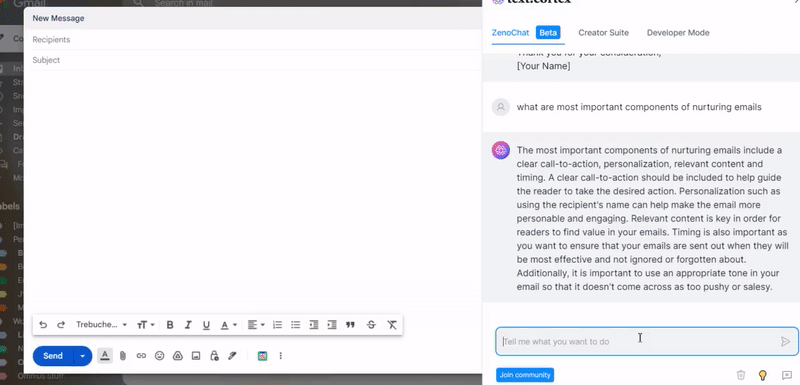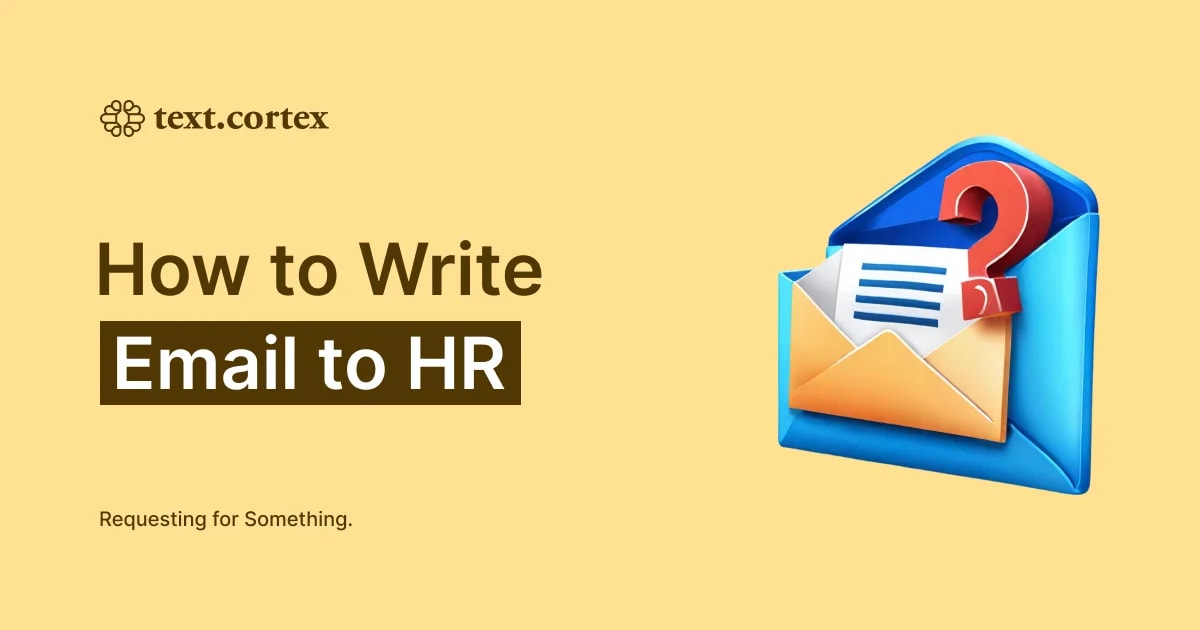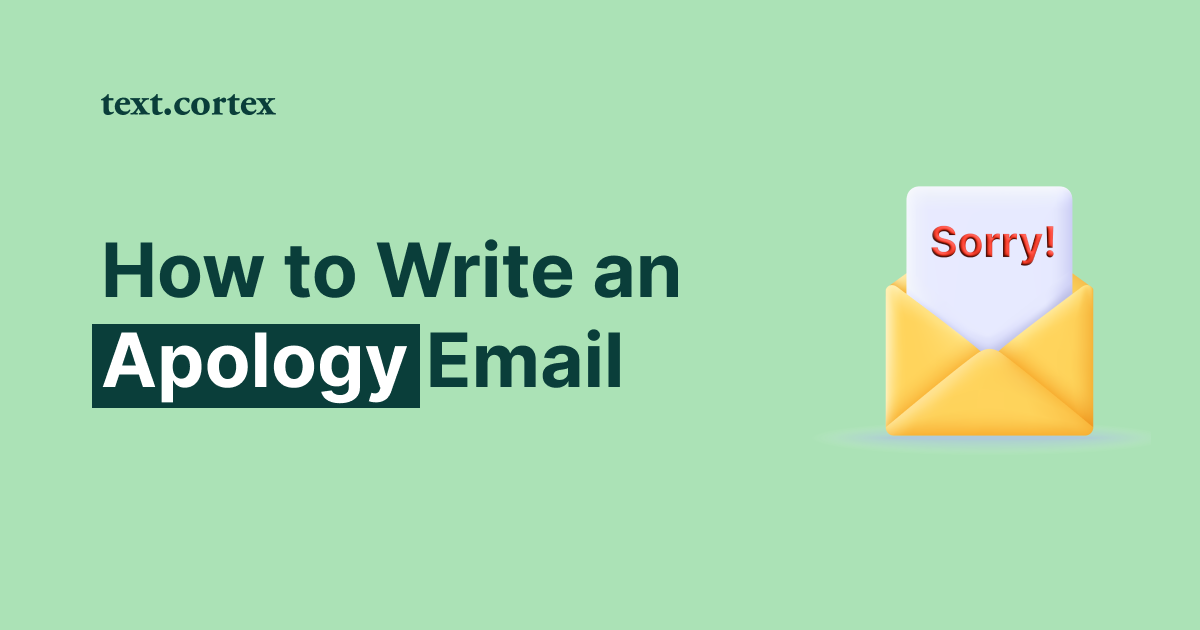Does writing an email to your boss make you nervous and uncomfortable?
Let’s be honest. If you're sending an email to your superior, it's probably because you have important news or a favor to ask for.
And, it has long been common knowledge that our superiors hold tremendous power over our professional lives.
They have the final say in matters such as paid time off, salary, and whether or not you will be recommended for employment elsewhere.
Because of this, the impressions we make on our superiors matter.

Today's article is for those of you who are worrying about how to write an email to your boss.
Unfortunately, the scope of these articles prevents us from teaching you every nuance of effective business writing.
However, you will learn the 6 most important aspects of professional communication, receive guidelines for writing an email, and see some sample emails to use as models.
At the end of this piece, you'll also find a bonus tip on how to impress your superiors with a simple email generated by AI.
Let’s begin!
The Essence of a Professional Communication at Work
Business communication, or the sharing of information and ideas among coworkers, departments, and organizations, is an essential part of any successful workplace.
Elements such as these define professional communication at their core:
✔️Clarity — The message needs to be straightforward and easy to understand.
✔️Accuracy — Data shared must be trustworthy and precise.
✔️Relevance — Sharing information is only effective if it is tailored to the specific needs of the recipient and the context in which it is being used.
✔️Timeliness — The urgency of the situation necessitates that the information be conveyed without delay
✔️Tone — Avoid using sarcasm, insults, and other disrespectful language, and write in a way that is appropriate for the reader and the context.
✔️Professionalism — Communicate in a professional and objective manner, void of bias or emotion.
✔️Confidentiality — Information of a sensitive nature should be kept private and disclosed only to those who have a genuine need to know.
✔️Active Listening — Listening attentively and putting yourself in the other person's shoes is essential for successful communication.
Professional communication that takes these elements into account can help create a welcoming office culture, increase trust and credibility, and guarantee the smooth flow of information crucial to professional success.
Use These 6 Steps to Write an Email to Your Manager Like a Pro
If you follow this 6-step process, writing an email to your manager will be a breeze.
1. Create a Clear Subject
The subject line of your email should be descriptive, while at the same time, conveying its importance.
Emails to superiors, unlike outreach campaigns, need not be flashy — rather, they should get right to the point about why you're reaching out.
Don't be shy about stating why you're writing this email:
- A request for a raise
- Permission to leave earlier
- A request for a conference call
2. Open an Email With an Appropriate Greeting
The second step is to greet the recipient in a professional manner.
Despite the fact that you and your boss may have a casual relationship, formality is usually expected when communicating via email.
In simple words, before writing anything else, make sure to address your boss with the appropriate title and last name, such as:
Dear Mr./Mrs. [Last Name]
Dear Dr. [Last Name]
3. Be Direct and To the Point
You can now begin addressing the reason for your email. You should get to the point without any unnecessary preamble.
Get right to the point by writing a concise introduction that sums up the email's point.
Here are some ideas to start:
Hello Mr. [Last Name] I hope you are doing well. I would like to use this opportunity to inquire about the possibility of a meeting to discuss my quarterly performance.
Mr. [Last Name], I hope that this is not a bad time. I was hoping you could find time in your schedule to assist me in resolving an inconvenient situation.
Pro Tip
When you're trying to get your point across and you're not sure what to leave out, it can be difficult to know what is essential.
TextCortex's "Summarize" feature is just one example of an AI writing feature that can be used for this purpose — to condense a long text down to its essentials.
And to use it, simply highlight your text and choose the “Summarize” feature in the rewriting menu.
4. Use Clear Language
When writing an email to your boss it is extremely relevant to keep your language straightforward and easy to understand.
Furthermore, make sure to avoid using technical terms unless absolutely necessary, and define them if they are used.
By making your email simple, you will reduce the potential for confusion and misunderstanding.
Swapping out some posh words for their simpler counterparts is a good place to begin.
Pro Tip
The TextCortex add-on also provides you with a simple way to make your sentences clear and straightforward.
Just highlight your text and choose the “Rewriting” feature on the menu. This will help you paraphrase your thoughts without changing their meaning.
What’s more, you can check the readability score of your text at any moment by clicking on the blinking bubble.
5. End With a Call-To-Action
No matter what you need to email your boss about, you should leave them with a clear next step after they've finished reading your message.
You should be able to state your point in a single sentence that looks something like this:
- Thank you for your time and consideration.
- I look forward to your reply.
- Please let me know if you have any questions or concerns.
- If you need any further information, please do not hesitate to reach out.
6. Proofread Before Sending
Last but not least, ensure the email is free of typos and grammatical mistakes before sending it.
If you've taken the time to make your case throughout the email, it seems wasteful to let a slew of typos detract from your efforts, right?
Pro Tip
You're well aware of how boring proofreading can be. To check if your email is correct, highlight it and click the "Text-to-speech" option.
It will read your entire message out loud so you can concentrate on making a good first impression.
Examples of How to Write an Email to Manager
In this section, we listed the top 4 scenarios when you need to write an email to your boss.
We hope you will find them helpful for future reference.
1. Time Off Email Example
It's normal to face unexpected problems that demand immediate attention. If you ever find yourself in a similar situation, here is how to convince your boss to let you take some time off:
Subject: Request for Time Off
Dear [Boss’s Name],
I hope this email finds you well. I am writing to request time off from work. I would like to take [number of days] of vacation/personal/sick leave starting from [start date] to [end date].
I understand that this may be a busy time for the team, and I am happy to work with you to ensure a smooth transition of my responsibilities during my absence. I am also willing to complete any outstanding tasks before I leave or make arrangements to have someone cover for me during my absence.
Please let me know if you require any additional information or if there is anything else I can do to support this request. I would greatly appreciate your consideration.
Thank you for your time and I look forward to hearing back from you soon.
Best regards,
[Your Name]
2. Request for a Recommendation Email Example
Recommendation letters are helpful when switching jobs or looking for new professional opportunities.
To see how to ask your manager for a recommendation, consider this example:
Subject: Request for Letter of Recommendation
Dear [Boss’s Name],
I hope this email finds you well. I am writing to request your assistance in providing a letter of recommendation for me. I am currently seeking new opportunities and believe that a letter from you would greatly enhance my chances of success.
I have thoroughly enjoyed working with you and appreciate the opportunities you have provided me during my time at [Company Name]. I believe the skills and experience I gained while working under your guidance would be valuable to future employers.
If you are able to write a letter of recommendation for me, I would be more than happy to provide you with additional information and materials, such as my resume and a list of my accomplishments while at [Company Name].
Thank you for your time and support. I would greatly appreciate your favorable consideration of this request.
Best regards,
[Your Name]
3. Ask for a Performance Review Meeting Email Example
There comes a time in every employee's tenure at a company when they require some kind of evaluation of their performance. Also, this is a great model for how to present yourself responsibly and professionally to higher-ups.
Consider the following email example when requesting a performance review:
Subject: Request for Performance Review Meeting
Dear [Boss’s Name],
I hope this email finds you well. I am writing to request a performance review meeting with you to discuss my progress and development at [Company Name].
I have been working diligently over the past [time period] and would like the opportunity to discuss my accomplishments and areas for improvement. I believe that this meeting will provide me with valuable feedback and allow us to set achievable goals for the future.
Please let me know if you have any available dates and times in the coming weeks that would be convenient for a performance review meeting. I would be happy to work around your schedule.
Thank you for your time and consideration. I look forward to the opportunity to discuss my progress and future potential with you.
Best regards,
[Your Name]
Write an Email to Your Boss With TextCortex Add-On
As you can see, writing an email to your boss isn’t that intimidating, isn’t it?
And since we are about to wrap things up, I’ll spare you from all those generic advice on how you should be yourself when writing them.
Instead, I’d like to use this opportunity and provide you with a solid solution that will craft compelling and professional emails for you — the TextCortex add-on.
What is TextCortex add-on?
The TextCortex is AI-powered writing solution that, besides all possibilities you’ve witnessed so far, also has the ability to:
We already mentioned some of its capabilities, but here is the full list:
✒️Rewrite sentences to improve their clarity and readability.
✒️Condense larger pieces of text for brief summaries.
✒️Extend text for more details.
✒️Autocomplete random thoughts into full paragraphs.
✒️Change the tone of voice to communicate your message accordingly.
✒️Translate your text into 10+ different languages.
✒️Transform bullets into ready-to-sent emails.
✒️Get up to 300-word blog posts out of 5-word ideas.
✒️Utilize Zeno mode for predicted output.
✒️Take advantage of Zeno chat's natural conversational flow to produce the desired results.
On top of that, you’ll get access to the 60+ different AI templates that can help you craft any content form you need based on the keywords you provide.

Are you ready to implement your AI writing assistant across 30+ popular platforms?
✔️Our freemium account with 10 free daily creations allows you to test the tool.
✔️You don’t need to enter any credit card information to sign up.
✔️In case you want to upgrade, we offer budget-friendly premium plans.
Claim your freemium TextCortex account to start writing any sort of emails like a pro, starting today.

![How To Write an Email to Your Boss & Manager [+3 Examples]](https://textcortex.com/cdn-cgi/image/format=avif,quality=90/https://assets-global.website-files.com/622611a2b23d0e6b270fba81/63eac6a98c7a5ce48882e27b_how-to-write-an-email-to-your-boss.png)

.png)
